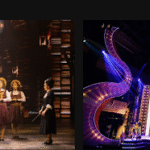
In any commercial environment, the efficiency, safety, and productivity of daily operations heavily rely on the quality of the electrical infrastructure. Proper electrical design goes far beyond simply powering a building—it ensures that power is delivered consistently, safely, and in a way that supports the specific needs of the business. Collaborating with a qualified commercial electrical company can make all the difference in achieving a system that is optimized for both current operations and future growth.
The Foundation of Efficient Business Operations
A well-designed electrical system is like a well-planned road network: it allows for smooth traffic flow, minimal congestion, and easy scalability. When businesses cut corners on electrical planning, they often suffer from power disruptions, equipment failures, and unnecessary maintenance costs.
A commercial electrical company provides tailored solutions that align with a business’s specific layout, industry requirements, and workflow. Proper electrical design ensures that every system, from lighting to machinery, operates at its best without interruptions or overload.
Benefits of Proper Electrical Design
1. Increased Operational Efficiency
One of the most significant benefits of working with a commercial electrical company on electrical design is improved efficiency across departments.
- Strategically placed outlets and circuits reduce the need for extension cords, temporary setups, and inefficient workflows.
- Balanced electrical loads prevent overuse of circuits, reducing downtime and improving overall equipment performance.
- Designing for peak usage ensures there’s always enough power during the busiest times of the day, reducing bottlenecks and delays.
2. Enhanced Safety
Electrical hazards are a major concern in any commercial facility. Proper design dramatically reduces the risks associated with faulty wiring, overloads, and improper grounding.
- Clearly labeled panels and wiring paths make it easy to perform maintenance or emergency repairs safely.
- Installation of proper surge protection shields sensitive equipment from damage due to voltage spikes.
- Code-compliant wiring and fixtures, implemented by a commercial electrical company, reduce the risk of fire or electrical accidents.
Safety and compliance go hand-in-hand, and professional design ensures that all installations meet local and national regulations.
Supporting Specialized Equipment and Systems
Every business has unique electrical needs. Restaurants, offices, data centers, and manufacturing plants all require different approaches to design. A commercial electrical company evaluates these needs and integrates custom solutions to support specialized equipment.
3. Reliable Power Distribution
- Isolated circuits for heavy machinery or mission-critical equipment help maintain stability.
- Redundant power systems can be designed for essential operations, allowing a business to continue running during partial outages.
- Customized lighting and HVAC systems ensure comfort and visibility without straining the electrical system.
4. Integration of Technology
As businesses become more dependent on digital tools, the demand for seamless technology integration grows. Proper electrical design accounts for:
- Networking infrastructure, including power for servers, routers, and data storage units.
- Smart building technology like motion sensors, automated lighting, and energy monitoring.
- Future expansion, with extra capacity built in to accommodate new systems or devices as the business evolves.
A qualified commercial electrical company will design an adaptable system that meets current needs while leaving room for growth.
Reduced Maintenance and Downtime
Poorly designed electrical systems are more prone to breakdowns, inefficient energy use, and recurring maintenance issues. This leads to interruptions that can cost businesses time and money. On the other hand, a system built with foresight and expertise operates more reliably and requires fewer emergency fixes.
A commercial electrical company can:
- Install dedicated circuits to reduce the risk of tripped breakers.
- Plan clear access to panels and wiring for easy maintenance.
- Use energy-efficient components that last longer and reduce the load on the system.
Over time, these decisions result in significant cost savings and a more predictable maintenance schedule
Energy Efficiency and Cost Control
Energy efficiency is no longer just a bonus—it’s a necessity for controlling costs and achieving sustainability goals. Proper electrical design plays a major role in reducing energy waste and controlling utility bills.
- LED lighting, efficient transformers, and smart controls can be integrated from the start.
- Load calculations ensure that equipment operates at optimal performance without drawing excess power.
- Energy monitoring systems, installed by a commercial electrical company, help track and manage energy use over time.
By designing with efficiency in mind, businesses can lower their monthly expenses and reduce their environmental impact.
The Role of a Commercial Electrical Company
The expertise of a commercial electrical company is essential to achieving a successful design. From the initial consultation to final installation and ongoing support, their role includes:
- Evaluating current and future electrical needs of the business.
- Creating custom blueprints that align with building codes and operational goals.
- Ensuring safe, scalable, and efficient systems that enhance everyday workflow.
Partnering with a skilled commercial electrical company provides peace of mind, knowing the system is built to support business success.
Conclusion
Proper electrical design is not just about getting power to your devices—it’s about streamlining operations, protecting assets, and enabling growth. Businesses that invest in professional electrical planning enjoy smoother operations, fewer interruptions, and greater long-term savings.
By working with a trusted commercial electrical company, you ensure that your electrical systems are not only functional but also tailored to support your business goals. Whether you’re building a new facility or upgrading an existing one, proper design lays the foundation for operational excellence every day.










